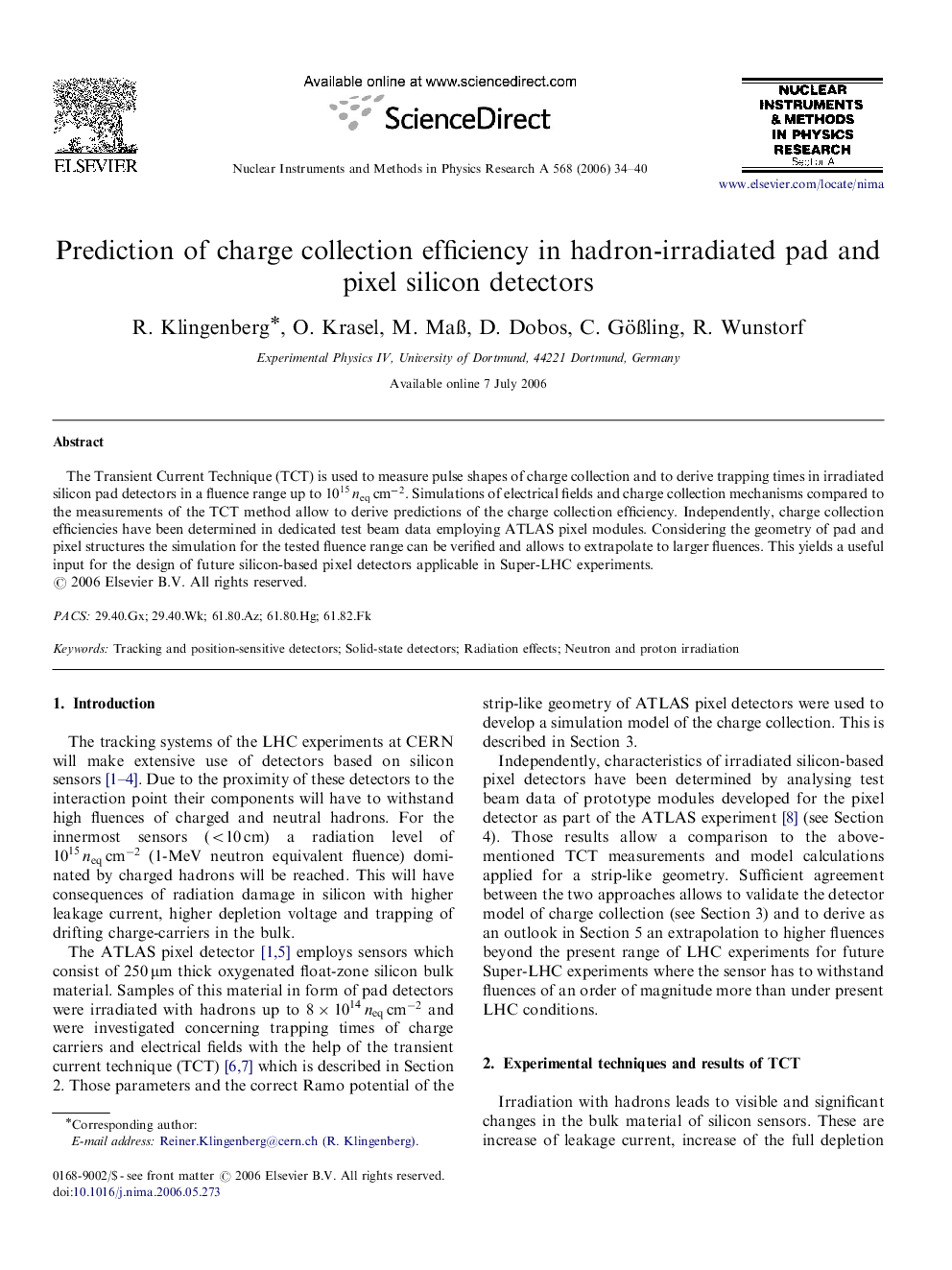| Article ID | Journal | Published Year | Pages | File Type |
|---|---|---|---|---|
| 1832449 | Nuclear Instruments and Methods in Physics Research Section A: Accelerators, Spectrometers, Detectors and Associated Equipment | 2006 | 7 Pages |
Abstract
The Transient Current Technique (TCT) is used to measure pulse shapes of charge collection and to derive trapping times in irradiated silicon pad detectors in a fluence range up to 1015neqcm-2. Simulations of electrical fields and charge collection mechanisms compared to the measurements of the TCT method allow to derive predictions of the charge collection efficiency. Independently, charge collection efficiencies have been determined in dedicated test beam data employing ATLAS pixel modules. Considering the geometry of pad and pixel structures the simulation for the tested fluence range can be verified and allows to extrapolate to larger fluences. This yields a useful input for the design of future silicon-based pixel detectors applicable in Super-LHC experiments.
Keywords
Related Topics
Physical Sciences and Engineering
Physics and Astronomy
Instrumentation
Authors
R. Klingenberg, O. Krasel, M. MaÃ, D. Dobos, C. GöÃling, R. Wunstorf,
